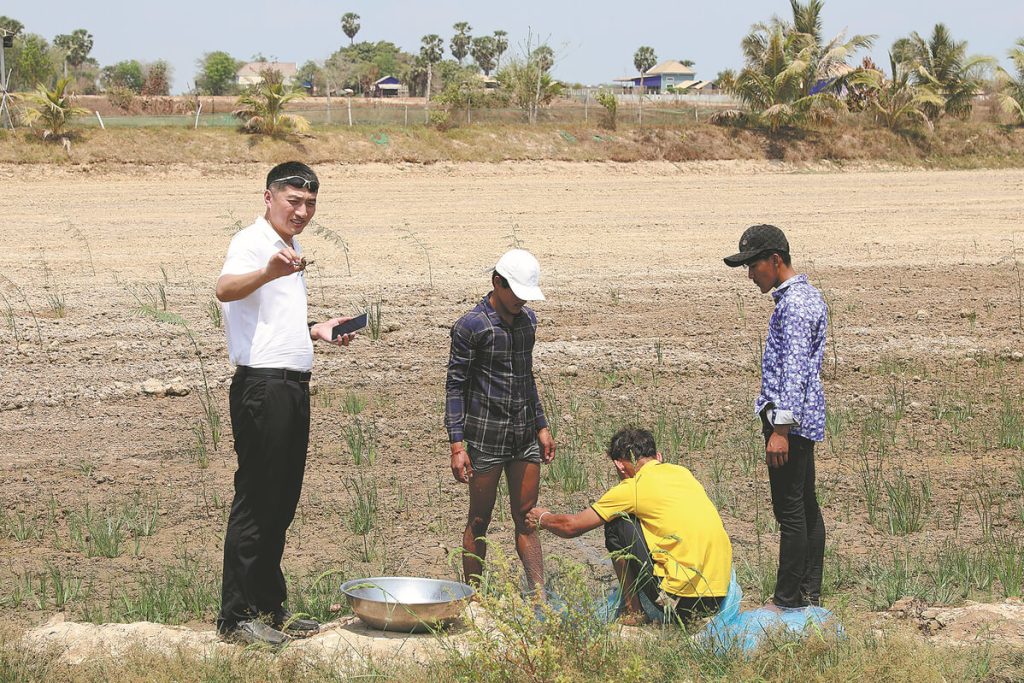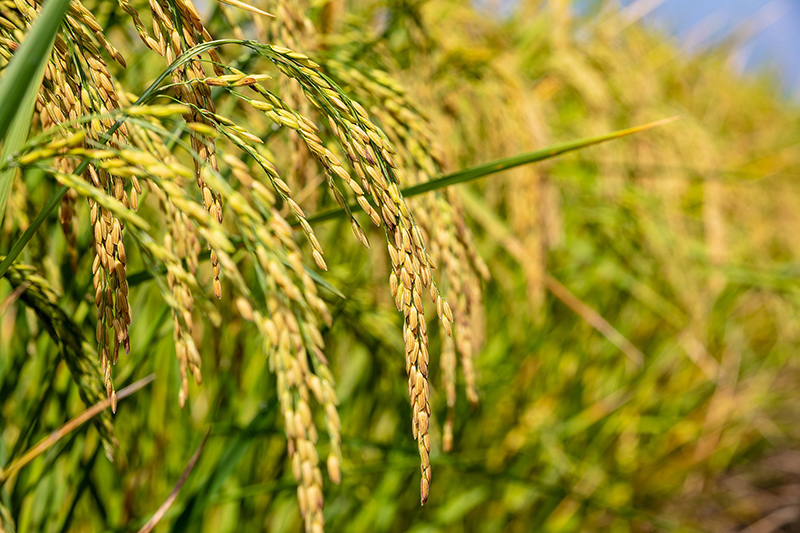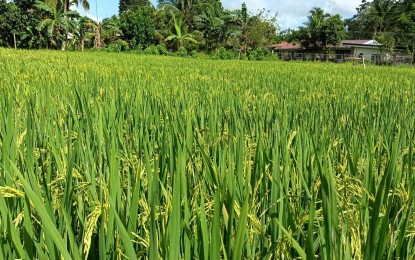Tags
Experts visit Cambodia to promote rice-fish farming

An agricultural expert from Shanghai Ocean University helps farmers grow fish and rice in Cambodia in April. [Photo provided to China Daily]
With the aim of promoting rice-fish and rice-shrimp farming in Cambodia, a research team from Shanghai Ocean University wrapped up an investigative and training visit to the Southeast Asian country recently, seeking to contribute to the construction of the Fish and Rice Corridor between the two countries.
According to a China-Cambodia joint communique released in September, the two nations will expedite the building of the corridor to increase their bilateral agri-trade volume, with cooperation on the agricultural sector focusing on developing aquaculture, agro-processing, ecological agriculture, modern machinery, new agricultural technology and human resources.
“Cambodia boasts an existing rice cultivation area of 3.3 million hectares. However, the area used for freshwater pond aquaculture in the country is only 1,350 hectares, which has led to the insufficient supply and high market prices of aquatic products such as giant freshwater prawn and tilapia,” said Wu Xugan, leader of the research team and a professor at the School of Aquatic and Life Sciences at Shanghai Ocean University. “There is huge potential in the two nations’ cooperation in the building of the Fish and Rice Corridor.”
During the team’s stay in Cambodia from April 21 to 27, it visited several regions, carried out in-depth investigations and held promotional events and technical training courses in a bid to learn more about local conditions and help farmers improve their rice-fish farming skills.
From 2021 to 2023, the team carried out a project in Cambodia focusing on technical cooperation on rice-fish farming and poverty reduction through aquaculture in the Lancang-Mekong River region.
The team’s recent visit was related to that project, which was renewed this year and has been expanded to include efforts to cultivate local talent.
Working with a technical team led by Thay Somony, director of the Department of Aquaculture Development at the Fishery Administration of Cambodia’s Ministry of Agriculture, Forestry and Fisheries, the research team visited three rice-shrimp farming demonstration bases it helped build in Takeo province, and provided training courses to over 30 farmers on site.
“We provided technical guidance at the base, starting with basic principles, and then we introduced general techniques,” Wu said.
He said the way rice-fish farming is conducted in Cambodia can sometimes be quite different from how it is done in China, due to the varied climate, landscape and production conditions as well as the lack of infrastructures such as reservoirs.
“Unlike the synchronized rice-fish farming pattern in China, many places in Cambodia can cultivate either rice or fish only during dry and rainy seasons, as they don’t have reservoirs to regulate water usage and have difficulty fending off the risks that come with those seasons (such as droughts and floods),” Wu said. “Also, we see the scale of aquaculture there is small — most of the farms are operated by a few families — and has not yet become commercialized. The farmer’s underdeveloped rice-fishing skills and the lack of a complete industrial chain have led to low productivity and the high cost of fish feed.”
Despite the challenges ahead, the research team remains committed to making more efforts to help Cambodian farmers develop rice-fish farming.
“We learned more about the local conditions during the visit,” Wu said. “We will start with optimization efforts to help locals protect fishery resources, then expand to large-scale rice-fish farming and pond aquaculture practices in the future.”
Given that local rice-fish farming talent is essential to Cambodia’s sustainable industrial development, the Shanghai Ocean University team also worked to attract more Cambodian students to the field by holding promotional events at high schools during its visit.
Virakbot Hou, a 31-year-old Cambodian postgraduate student majoring in aquaculture at Shanghai Ocean University since 2022, joined the team to share his experiences.
He has been involved in research on rice-shrimp farming in Takeo province, which has improved the livelihoods of 20 farming families.
“I am very grateful to the Chinese government and Shanghai Ocean University for giving me both knowledge and opportunities to develop rice-fish farming in Cambodia,” he said. “In the future, I hope to see more Cambodian rice-fish farming professionals with the university’s help. I also hope that Cambodia can establish a sustainable rice-fish farming industry chain, so that more farmers can embark on the road to prosperity.”
https://www.chinadaily.com.cn/a/202405/13/WS664173b5a31082fc043c6bb9.htmlPublished Date: May 13, 2024






